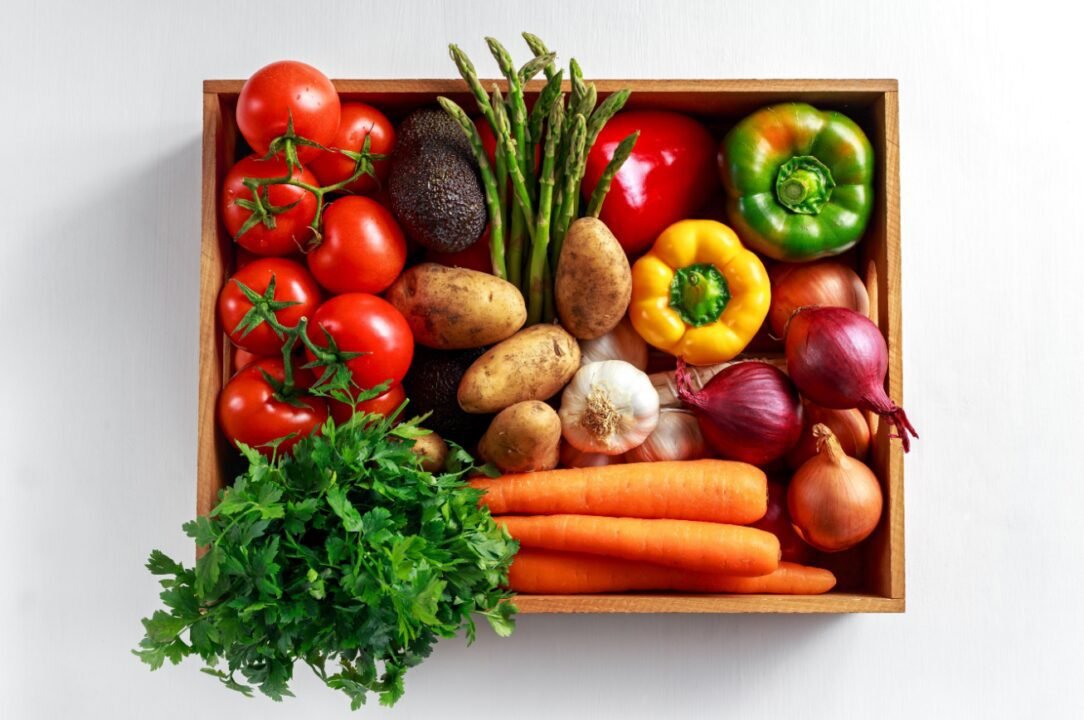Eating a diet rich in vegetables is a cornerstone of good health. But with the changing seasons and varying availability, navigating the produce aisle can get confusing.
What if you could consistently access a wide range of nutritious vegetables, no matter the time of year?
This guide unlocks the secrets of smart produce choices, empowering you to maintain a vibrant, veggie-focused diet year-round.
We’ll cover versatile staples, storage techniques, and creative ways to incorporate these powerhouses of nutrition into your meals.
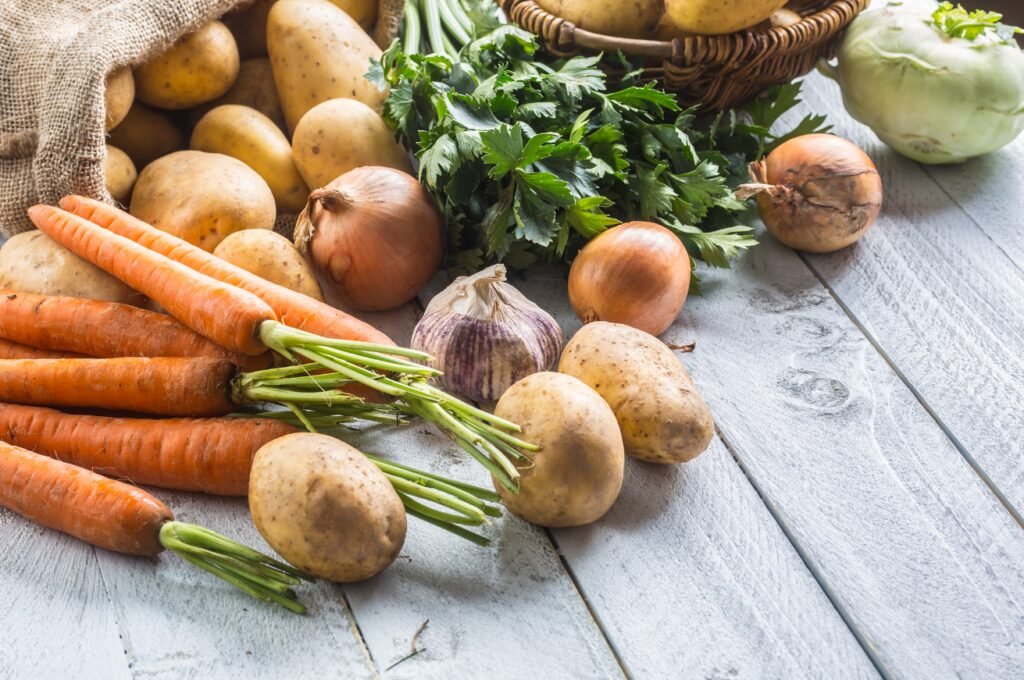
The Year-Round Heroes
When it comes to dependable healthy options, these vegetables deserve a permanent spot on your grocery list:
- Robust Root Vegetables: Carrots, beets, potatoes, sweet potatoes, and onions boast excellent staying power and a multitude of culinary uses. They’re packed with fiber, vitamins, and antioxidants, promoting gut health, blood sugar control, and a strong immune system.
- Hardy Cruciferous Gems: Broccoli, cauliflower, Brussels sprouts, and cabbage are nutritional superstars. Loaded with cancer-fighting compounds, fiber, and essential vitamins, they form the backbone of any healthy eating plan.
- The Versatile Greens: Kale, spinach, Swiss chard, and collard greens retain their nutrients through many storage methods. These leafy marvels offer generous amounts of vitamins A, K, and C, and they’re easy to add to everything from smoothies to savory dishes.
Powering Up with Frozen and Canned
Don’t underestimate the value of frozen and canned vegetables! These often-overlooked options are surprisingly nutritious and incredibly convenient.
- Frozen: Flash-frozen vegetables are picked and preserved at peak freshness, locking in valuable nutrients. Peas, corn, green beans, mixed veggie blends – these frozen wonders are fantastic budget-friendly additions to stir-fries, soups, and casseroles.
- Canned: Canned beans (black beans, chickpeas, lentils) are lifesavers for quick, protein-rich meals. Canned tomatoes offer versatility as the base for sauces, soups, and stews. Opt for low-sodium varieties whenever possible.
Storage Smarts for Longevity
Make your vegetables last longer with these pro tips:
- Root Vegetables: Keep carrots, beets, and onions cool and dry. A dark pantry or a loosely wrapped paper bag in the crisper drawer works well.
- Potatoes: Store potatoes in a cool, dark, and well-ventilated spot. Avoid storing them with onions, as this can promote premature sprouting.
- Cruciferous: Broccoli, cauliflower, and Brussels sprouts stay fresh longer in the refrigerator, ideally unwashed and stored in perforated bags.
- Leafy Greens: Wash, dry, and wrap delicate greens like spinach and kale in paper towels before refrigerating. For heartier greens like collards, a reusable produce bag provides breathability.
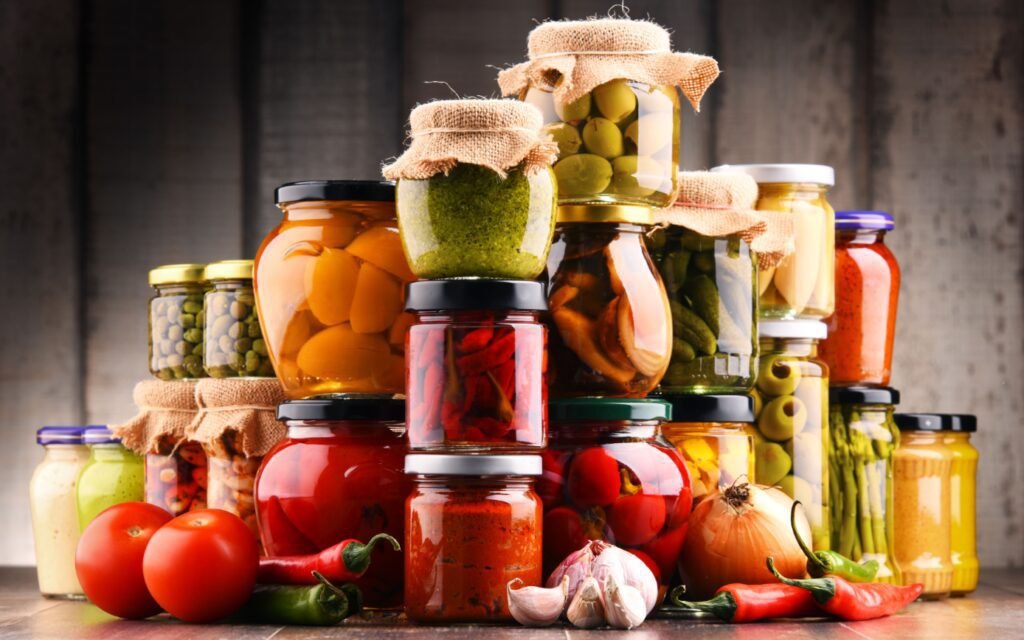
Beyond the Salad Bowl: Creative Vegetable Inspiration
Think outside the box to enjoy the bounty of vegetables in exciting ways:
- Roasting: Amplify the natural sweetness of carrots, beets, Brussels sprouts, and onions by roasting them with a drizzle of olive oil and your favorite herbs.
- Veggie-Packed Soups & Stews: Lentils, beans, potatoes, and root vegetables shine in hearty, satisfying soups and stews. Experiment with different flavor profiles – Moroccan spiced lentil soup or a creamy sweet potato and coconut curry.
- Sneak Them In: Finely grated carrots in muffins, zucchini noodles instead of pasta, or spinach blended into smoothies are delicious ways to boost your veggie intake.
- Frittatas and Omelets: Transform leftovers into nutritious frittatas packed with broccoli, peppers, onions, or spinach.
- Fermenting: Get adventurous and try your hand at fermenting cabbage into sauerkraut or kimchi. Fermented foods are brimming with gut-friendly probiotics.
Imagine a chilly winter evening. You roast a medley of carrots, sweet potatoes, and onions seasoned with rosemary and a touch of maple syrup. The aroma fills your kitchen, and the caramelized vegetables offer a comforting and deeply satisfying side dish or a base for a wholesome grain bowl.
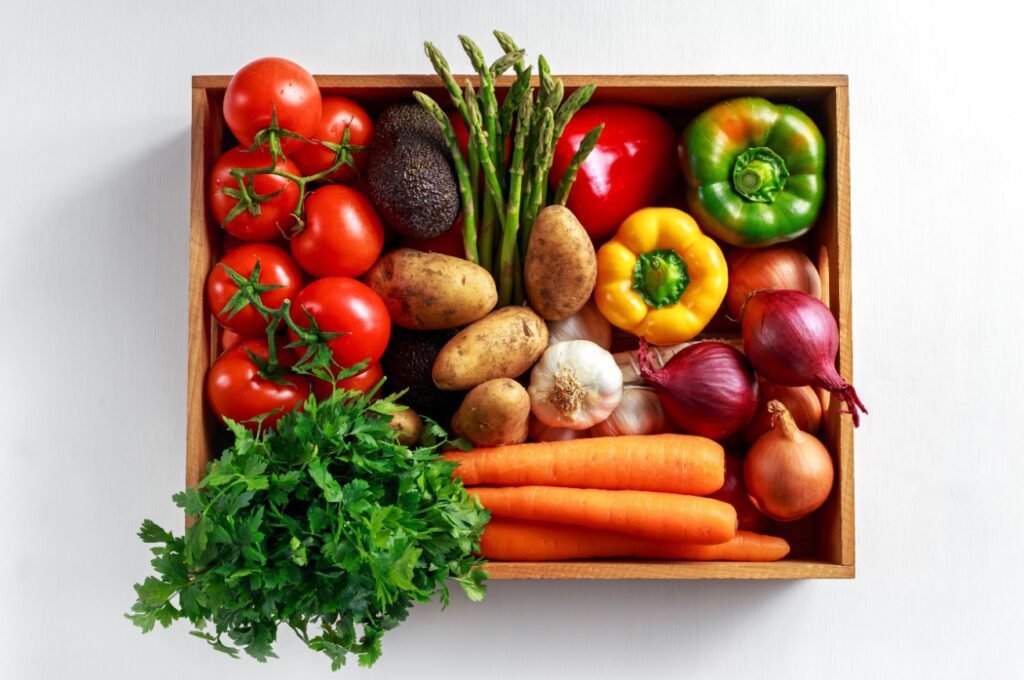
Embracing Seasonal Delights
While our focus has been on year-round accessibility, don’t overlook the culinary joys of seasonal produce. Fresh, in-season vegetables often shine with peak flavor and can be easier on the wallet.
- Spring Delights: Welcome asparagus, artichokes, radishes, and tender lettuces. Enjoy their vibrant freshness in salads, stir-fries, or simply grilled with a touch of lemon and herbs.
- Summer Bounty: Tomatoes, zucchini, bell peppers, green beans, and sweet corn flood farmers’ markets and grocery shelves. Savor them raw, roasted, or transformed into gazpacho or a classic ratatouille.
- Autumn Abundance: Butternut squash, Brussels sprouts, pumpkins, and a variety of winter squashes offer warmth and satisfying flavors. Roast them, puree them into soups, or add them to cozy grain bowls.
- Winter Comforts: Hearty greens like kale and collard greens thrive in colder temperatures. Turn them into satisfying sautés, or add them to hearty bean stews for a boost of nutrition.
Tips for Seasonal Shopping:
- Visit Your Farmers’ Market: Develop relationships with local farmers and learn about their freshest offerings. You’ll be rewarded with produce at its peak flavor.
- Look for “In Season” Signs: Many grocery stores highlight seasonal items, making your choices easy.
- Experiment: Don’t be afraid to try unfamiliar seasonal vegetables. Seek out new recipes and discover new favorites.
Smart Shopping & Sustainability
Making informed choices in the produce aisle supports your health and benefits the planet.
- Opt for Organic When Possible: If your budget allows, choose organic produce, especially for vegetables on the “Dirty Dozen” list, which are known to retain higher pesticide residues when conventionally grown.
- Reduce Food Waste: Buy what you’ll use within a week. Learn about proper storage techniques, and get creative with leftovers to prevent food waste.
- Composting: Compost vegetable scraps to create nutrient-rich soil amendments for your garden. This closed-loop approach is excellent for the environment.
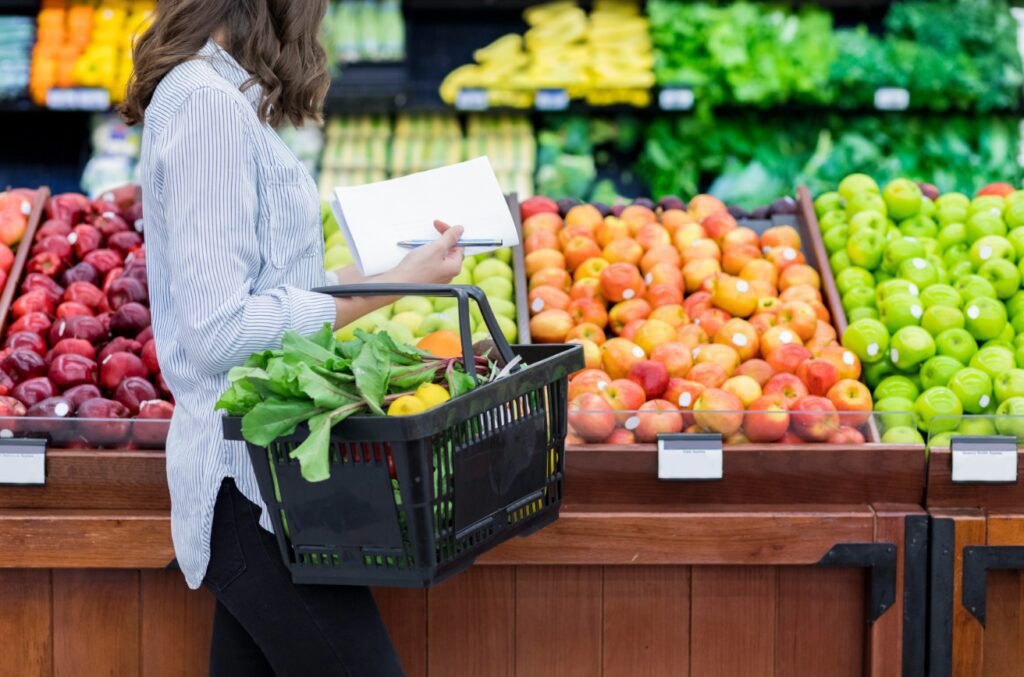
Final Thoughts
A diet rich in vegetables is synonymous with good health. By strategically combining fresh, frozen, and canned vegetables, along with a dose of seasonal inspiration, you can make healthy, delicious dishes a staple in your kitchen year-round. Remember, each time you fill your plate with the vibrant colors of the plant world, you invest in your well-being.
